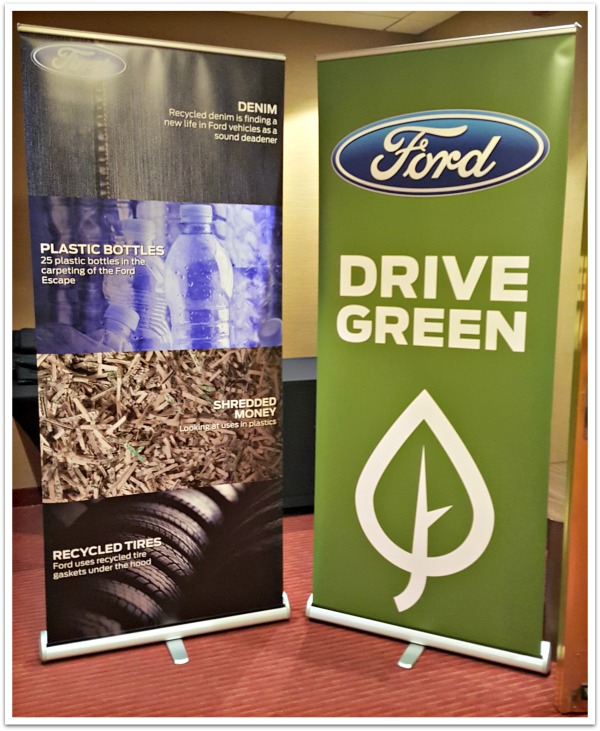
Henry Ford was a man who was ahead of his time. It was way back in the 1930’s when Henry was already interested in soybeans as a potential alternative to petroleum in the production of cars.
Alternative fuel sources, and biomaterials, have now become the buzzwords of the 21st century – decades after Ford first had his vision.
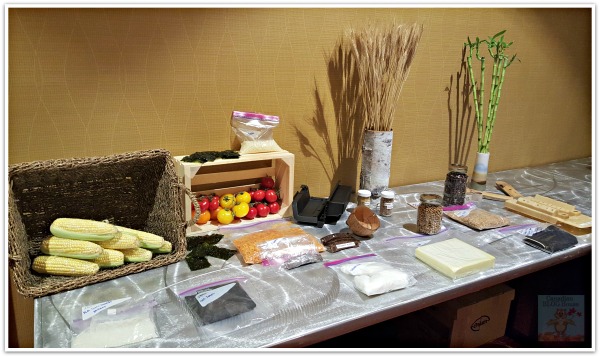
Did you know? On August 13, 1941, Henry Ford unveiled the first Ford “Soybean Car” at Dearborn Days in Dearborn, Michigan? Even back then, Ford was investing money in a soybean farm, a soy processing plant, and soy crop research. Ford had amazing foresight to know that one day, his customers would be looking to Ford to be the leader in sustainability in the world of car production.
Unfortunately, auto production was suspended during World War I, and Ford’s technology advancements became lost, as all energy was put into war recovery efforts.
Today, Ford Motor Company is at the forefront of using renewable materials in the production of cars, and we were lucky enough to hear more about these efforts this past weekend at the BConnected Conference here in Ottawa.
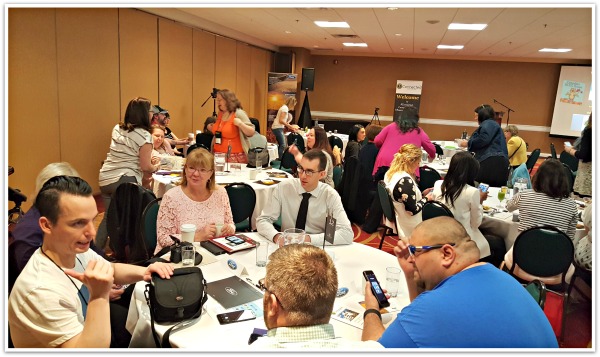
It was at this Ford Canada #FordFarmToCar Sustainability Breakfast I learned that I really did not know how forward-thinking Ford is when it comes to sustainability and the production of Ford vehicles.
For example, did you know that since 2011, all Ford vehicles built in North America have soy foam in their seat cushions and backs?
Soy foam.
That sounds terrific, but what does this really mean?
It means an estimated savings of 2.3 million kilograms of petroleum per year.
What else is Ford doing when it comes to using sustainable materials in their vehicles?
Ford is using wheat straw-reinforced plastic in the storage bins of the Ford Flex – the world’s first application of this material. The result? A reduction of 9,000 kilograms of petroleum, and Ford’s CO2 emissions reduced by 13,600 kilograms annually.
These numbers are just a drop in the sustainability bucket for Ford. Just as Henry Ford did back in the 1930’s and 40’s, Ford continues to go further and think outside the box.
How?
Just take a look at all these food by-products, oversupply, and biomaterials currently being tested by Ford for use in Ford vehicles:
- Sugar Cane
- Tomatoes
- Corn
- Bamboo
- Algae
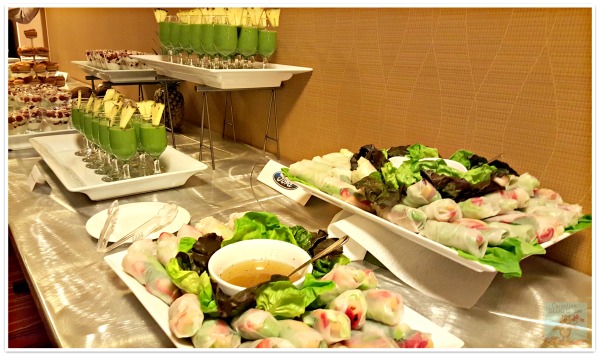
The Ford Sustainability Breakfast was a sight to behold. How could you not just stand there and stare at the masterpiece of breakfast items awaiting us at the buffet tables? The presentation, the colours, and all the unique textures of the food made it look almost too beautiful to touch.
That thought did not last long, however, as we all dug into the delicious foods that awaited us!
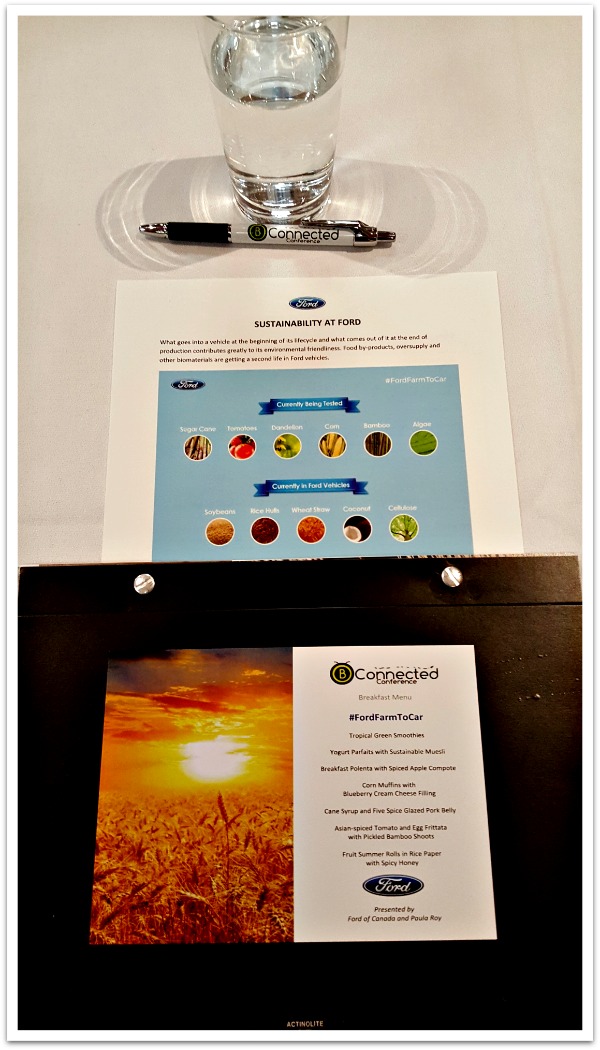
All the recipes for the Ford Sustainability Breakfast at the BConnected Conference were developed by Ottawa’s own Paula Roy, Food Editor of Ottawa At Home Magazine, and blogger behind the blog “Constantly Cooking“.
Paula did a fabulous job developing some pretty unique recipes. After all, it can’t be easy to try to incorporate ingredients like bamboo shoots and rice paper – into breakfast foods!
What I loved about the Ford Sustainability Breakfast were the colours, textures, and the healthy ingredients used in all the recipes. I came away from this breakfast feeling full, energized, and ready to face a day of learning and networking.
What I didn’t like was the fact that, somehow, I had missed trying two items on the menu! Yes, I missed the Polenta with Spiced Apple Compote, and the Corn Muffins with Blueberry Cream Cheese Filling.
Thankfully I did not miss these tasty parfaits!
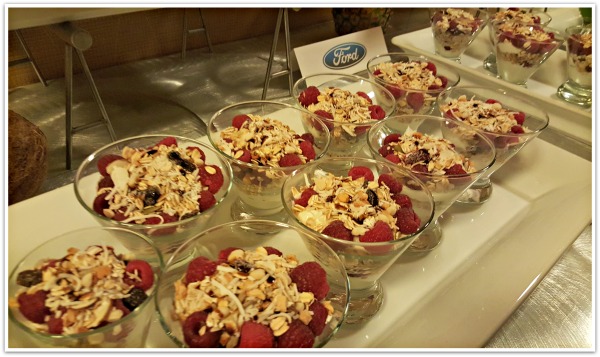
These were probably my favourite sustainable breakfast item. Loved the combination of the yogurt, fresh raspberries, locally made muesli with (of course!) coconut. Chocolate-flavoured balsamic? Yummy! That was definitely a “new-to-me” taste sensation!
I enjoyed the Coconut Yogurt Parfaits with Sustainable Muesli so much I thought I would share this recipe with you. I’ve also included a link, provided by Paula, where you can purchase the locally made (Ottawa) muesli.
Coconut Yogurt Parfaits with Sustainable Muesli
Locally made muesli is available courtesy of “The Muesli Project“. They sell a blend which includes coconut in 1 kilo bags for restaurants; $20 each
Ingredients
• 1/2 cup plain yogurt (regular, Greek or lactose free)
• Handful fresh raspberries
• 1/4 cup Muesli with coconut
• Chocolate-flavoured balsamic, for drizzling Method
• Layer yogurt, berries and muesli in a glass cup. Repeat layers twice.
• Drizzle top with about 1 teaspoon of chocolate balsamic.
Serves 1
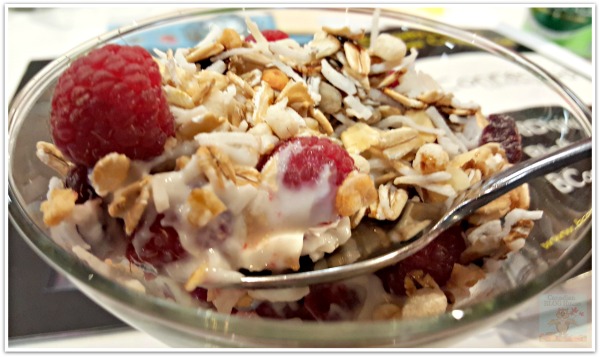
Breakfast will never be the same again.
Neither will any of my future vehicle purchases.
Ford’s commitment to sustainability, and their renewable materials program, will forever have me questioning what goes into a vehicle at the beginning of its life-cycle, and what comes out at the end of its production.
Henry Ford was way ahead of his time when he created the first Ford soybean farm in Southeast Michigan in the 1930’s.
Today, Ford Motor Company is way ahead of its time.
No matter where the sustainable road takes Ford into the future, they are sure to go further.
My bets are firmly on Ford.
For more information, please see Ford’s approach to sustainability, including Ford’s Sustainable Materials Strategy, on Ford’s website.

Disclosure: Canadian Blog House was not compensated for this post. All opinions are our own.
